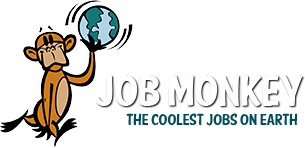Research Scientist Intern, AI for Photonics Inverse Design Responsibilities:
- Develop novel state-of-the-art Inverse design algorithms and corresponding systems, leveraging various artificial intelligence and deep learning techniques.
- Analyze and improve efficiency, scalability, and stability of corresponding deployed algorithms.
- Perform state of the art research to advance the science and technology of Machine Learning and Artificial Intelligence, with impact on Inverse Design.
- Devise better data-driven models for inverse design, information retrieval, Multi-modal fusion, generation or media understanding (CV, NLP, Speech/ Audio).
- Collaborate with researchers and cross-functional partners including communicating research plans, progress, and results.
- Publish research results and contribute to research that can be applied to Meta product development.
Minimum Qualifications:
- Currently has or is in the process of obtaining a Masters degree in Machine Learning, Artificial Intelligence, Computer Science, Information or Multimedia Retrieval, Reinforcement Learning, Mathematical Programming, or relevant technical field (or equivalent).
- Must obtain work authorization in country of employment at the time of hire and maintain ongoing work authorization during employment.
- Experience with Python, C++, C, Java or other related language.
- Experience with deep learning frameworks such as Pytorch or Tensorflow.
- Experience building systems based on machine learning and/or deep learning methods.
- Research experience with algorithms for sequential decision-making, e.g., planning, reinforcement learning, or similar.
Preferred Qualifications:
- Intent to return to degree program after the completion of the internship/co-op.
- Proven track record of achieving significant results as demonstrated by grants, fellowships, patents, as well as first-authored publications at leading workshops or conferences such as NeurIPS, ICLR, AAAI, RecSys, KDD, IJCAI, CVPR, ECCV, ACL, NAACL, EACL, ICASSP, or similar.
- Demonstrated experience and self-driven motivation in solving analytical problems using quantitative approaches.
- ML/ AI research and/ or work experience in information retrieval problems, generative approaches, and/ or Natural Language Processing, CV, or Speech/ Audio.
- Experience building systems based on machine learning, reinforcement learning and/or deep learning methods.
- Demonstrated software engineer experience via an internship, work experience, coding competitions, or widely used contributions in open source repositories (e.g. GitHub).
- Experience working and communicating cross functionally in a team environment.
Source ⇲



